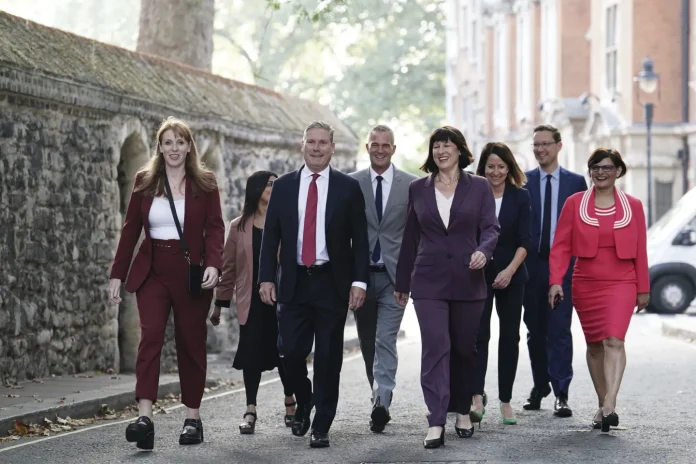The British Labour Party aims for a closer defence partnership with the EU, France and Germany if it comes to power after the 2024 general election, Politico reports.
Shadow Defence Secretary John Healey claimed Labour would dramatically change the party’s defence and security policy to deepen military cooperation with the European Union.
We would look to put in place systematic cooperation and a defense and security pact with the European Union. We would begin work directly after the election.
The Labour Party is 19 percentage points ahead of the ruling Conservatives in polling, with Healey aiming to convince voters that the Labour government would be eager to bring the UK back to the negotiating table on EU military cooperation.
“If we win the election (…) we must rebuild relationships with key allies and with the European Union. Relationships that were badly damaged, sometimes deliberately so, during the Brexit process.”
The Defence and Security Treaty, previously rejected by former Prime Minister Boris Johnson and capable of formalising UK-EU cooperation, has been included in the political declaration. Healey claims his government will seek to expand this cooperation to include collaboration on logistics projects and cybersecurity, as well as a broader strategic dialogue.
We in the UK have particular expertise in military and security intelligence.
However, despite the desire for renewed cooperation, Healey will not commit to joining the European Defence Fund, the EU monetary fund designed to stimulate research and innovation, as Norway has done, or to joining any joint procurement initiatives.
In addition to negotiating an agreement with the EU, Healey stated that a new bilateral defence and security agreement would be signed with Germany “within six months” after the Labour government comes to power as part of an agreement already drawn up with Germany’s Social Democrats.
The agreement between Berlin and London could eventually lead to cooperation in manufacturing, procurement and research, as well as a joint industrial strategy to benefit both countries’ defence sectors.
Healey added that the Labour government would also seek to “reboot” the 2010 Lancaster House Agreement with France, which would reinforce cooperation with Paris on both defence and industrial projects.
Paris officials have expressed a readiness to forge closer ties after several turbulent years. Bernard Cazeneuve, a former French prime minister, spoke at a conference organised by the Montaigne Institute in Paris on Thursday.
“If Labour were to come to power in the United Kingdom, they would have to build a different relationship with the EU compared with the Conservatives. On defense, there is room for a dialogue with the EU and France without questioning Brexit. We can be a bridge between the EU and the UK, which would allow us to play a different role within NATO.”
The Labour Party is keen to show voters that it strongly opposes the ideas of former leader Jeremy Corbyn, who wants Britain to stop supplying arms to Ukraine and disband military alliances such as NATO.
There is no doubt about our unshakeable commitment to NATO or to Ukraine. And there’s no doubt about the extent to which the Labour Party has changed since Kier Starmer became leader.
